The Benefits of Combining Traditional Psychiatry with Holistic Approaches
Mental health care has evolved significantly in recent years. Blending time-tested methods with innovative perspectives to offer more comprehensive treatment options. Traditional psychiatry, with its focus on evidence-based medication management and psychotherapy, remains a cornerstone of mental health treatment. However, integrating holistic approaches emphasizing lifestyle, emotional well-being, and the mind-body connection can enhance outcomes for individuals struggling with conditions like anxiety, depression, bipolar disorder, and more. This fusion of traditional and holistic care offers a balanced, personalized path to mental wellness.
Understanding Traditional Psychiatry
Traditional psychiatry relies on a scientific framework to diagnose and treat mental health conditions. Psychiatrists and psychiatric mental health nurse practitioners (PMHNPs) use tools like medication management and brief psychotherapy to address symptoms of disorders. Including ADHD, PTSD, OCD, and bipolar disorder. For example, antidepressants may alleviate persistent sadness, while mood stabilizers can help manage the highs and lows of bipolar disorder. Psychotherapy, another pillar of traditional psychiatry, facilitates insight and behavioral change. Modalities like Cognitive-Behavioral Therapy (CBT) and Motivational Interviewing empower individuals to reframe negative thought patterns and build coping strategies. These evidence-based practices are grounded in decades of research, ensuring their efficacy for a wide range of mental health challenges. However, traditional psychiatry often focuses on symptom relief, which, while critical, may not address the full spectrum of a person’s well-being.
The Rise of Holistic Approaches
Holistic mental health care takes a broader view.Recognizing that mental wellness is deeply tied to physical health, lifestyle, and emotional balance. Research increasingly supports the role of inflammation in mental health disorders, highlighting the importance of foundational elements like sleep, nutrition, and supportive relationships. A holistic approach might encourage a patient to prioritize consistent sleep schedules to reduce anxiety or adopt a nutrient-rich diet to combat depressive symptoms. By addressing these root factors, holistic care complements the symptom-focused interventions of traditional psychiatry. This perspective also emphasizes stress reduction and resilience-building. Chronic stress can exacerbate conditions like PTSD or depression, making it essential to minimize unnecessary pressures. Holistic practices such as mindfulness, exercise, or even community engagement offer practical ways to bolster mental health from the ground up. Nurses and practitioners who adopt this lens often evaluate patients from a strengths-based perspective, identifying areas of resilience to build upon rather than focusing solely on deficits.
Bridging the Gap: A Collaborative Model
The true power of mental health care lies in combining traditional psychiatry with holistic approaches. For instance, a patient with anxiety might benefit from a conservative prescription of medication to manage acute symptoms, paired with lifestyle changes like improved sleep hygiene and stress-reducing techniques from Acceptance and Commitment Therapy (ACT). This collaborative model ensures that immediate needs are met while fostering long-term wellness. Take substance use disorders as another example. Traditional psychiatry might offer medication-assisted treatment (MAT) like naltrexone or Vivitrol to support recovery from opioid or alcohol use disorder. A holistic approach enhances this by encouraging engagement with community support groups and harm reduction strategies, recognizing that abstinence isn’t the only path to recovery. This dual framework respects individual circumstances and preferences, making treatment more accessible and effective.
Personalized Care at the Core
One of the standout benefits of integrating these approaches is the emphasis on personalization. Mental health is not one-size-fits-all, and a combined model allows practitioners to tailor treatment plans to each individual’s goals. For example, a patient with ADHD might receive medication to improve focus. Alongside nutritional guidance to support brain health and brief psychotherapy to build organizational skills. This synergy ensures that both the biological and lifestyle aspects of a condition are addressed. Education also plays a key role in this integrated approach. Patients are empowered with clear information about what medications can treat such as specific symptoms and what requires alternative strategies, like therapy or lifestyle adjustments. This transparency helps individuals make informed decisions, fostering a sense of agency in their recovery journey.
Evidence-Based Evolution
The mental health field is dynamic, with new research constantly reshaping best practices. What was standard a few years ago may differ from today’s recommendations. Yet the timeless value of a balanced life remains constant. Combining traditional psychiatry’s evidence-based rigor with holistic care’s focus on the whole person aligns with this evolution. For instance, while benzodiazepines may have a limited role due to their risks, solution-focused therapies like Accelerated Resolution Therapy (ART) can offer rapid relief for trauma-related symptoms, complementing medication when needed.
Building a Foundation for Recovery
Recovery, whether from mental illness or substance use, requires effort and a solid foundation. Traditional psychiatry provides the tools to stabilize symptoms, while holistic approaches build the scaffolding for sustained well-being. Good sleep, nutrition, and relationships aren’t just add-ons, they’re essential components that amplify the effects of medication and therapy. Practitioners who embrace this dual approach encourage patients to engage actively in their care, whether through community support or incremental lifestyle changes.
A Path Forward with Compass Psychiatric Wellness
The integration of traditional psychiatry and holistic approaches offers a promising path for those seeking mental health support. It’s a model that values both science and the individual, delivering care that’s as compassionate as it is effective. For residents of Oregon and Washington, Compass Psychiatric Wellness embodies this philosophy. This mental health clinic provides accessible, personalized treatment available in-person or online. Focusing on comprehensive psychiatric medication management and brief psychotherapy for conditions like anxiety, depression, and PTSD. With a team of PMHNPs dedicated to trauma-informed, evidence-based care, Compass Psychiatric Wellness crafts collaborative treatment plans that prioritize patient goals, blending conservative prescribing with holistic insights. Whether you’re navigating a mental health challenge or supporting a loved one, Compass Psychiatric Wellness offers a balanced, empowering way forward!
